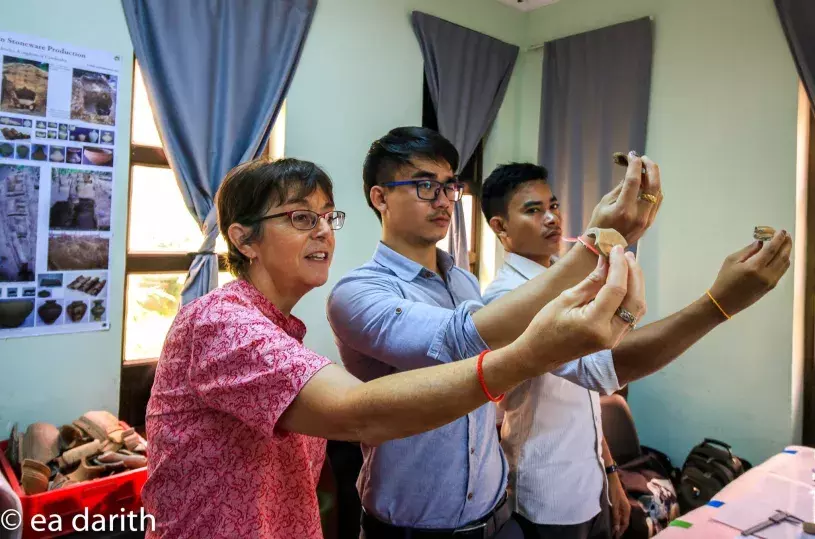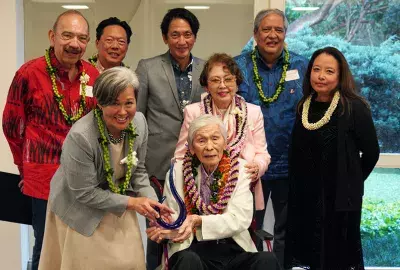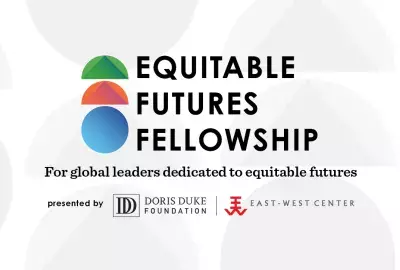Error message

OFFICE/DEPARTMENT
HONOLULU (July 14, 2020) -- The University of Hawaiʻi at Mānoa’s Center for Southeast Asian Studies in partnership with the East-West Center have been awarded a million-dollar grant from the Henry Luce Foundation for programming related to the "LuceSEA Transitions: Environment, Society and Change" project exploring socioeconomic and environmental shifts that are transforming Southeast Asian societies in a time of accelerated climate and environmental change.
With support from the Luce Foundation, the UH/EWC team will:
- Enhance collaboration and equality with Southeast Asia-based research partners by embedding training and collaboration opportunities into research and professional opportunities;
- Support workshops to share information and help early career researchers develop professional skills;
- Develop and make available college-level Southeast Asia curricular resources on environmental issues and agrarian transitions as Open Educational Resources and for-credit online courses available using digital technology.
This project will create close mentorship programs that transcend institutional boundaries through joint fieldwork, professional training, conference participation, and scholarly publication.
Nurturing collaboration that crosses boundaries is integral to addressing socio-environmental transformations and to helping Southeast Asia-based early career colleagues engage with the international academic world. Southeast Asia-based researchers, and non-specialists more easily incorporate SE Asia into their social sciences and humanities research. Coordinating efforts at UHM and EWC with SE Asia-based colleagues enhances the depth and breadth of UH’s activities in Hawai’i, and enhances SE Asia Studies in the United States.
Center for Southeast Asian Studies Director Miriam Stark, who will direct the project, said, “I’m honored to work with members in our community of researchers on his project. Most have collaborated with SE Asia colleagues for decades to document changes in rural and urban areas and how this impacts households, and this grant will forge an international cohort needed to strengthen the field.”
East-West Center partner Jefferson Fox added, “By educating and mentoring SE Asian graduate students, we are building enduring global connections and local expertise in the region leading to more equitable urban and agrarian policy making.”
Helena Kolenda, the Luce Foundation's Program Director for Asia, expressed pleasure that this project was approved by the Foundation's board of directors. "This effort, led by the University of Hawai‘i and the East-West Center," she said, "closely aligns with the aims of the LuceSEA initiative to support: innovation in emerging areas of inquiry and expansion of direct engagement with scholars in the region; enhancement of scholarly infrastructure for teaching and research relevant to Southeast Asia; and collaborations between academic centers and with partners outside academia."
___________________________________________________________________________
The East-West Center, established by the U.S. Congress in 1960, promotes better relations and understanding among the people and nations of the United States, Asia, and the Pacific through cooperative research, study, and dialogue. The Center is an independent, public, nonprofit organization with funding from the U.S. government, and additional support provided by private agencies, individuals, foundations, corporations, and governments in the region.
The Henry Luce Foundation seeks to enrich public discourse by promoting innovative scholarship, cultivating new leaders, and fostering international understanding. Established in 1936 by Henry R. Luce, the co-founder and editor-in-chief of Time, Inc., the Luce Foundation advances its mission through grantmaking and leadership programs in the fields of Asia, higher education, religion and theology, art, and public policy. https://www.hluce.org/
The Center for Southeast Asian Studies (CSEAS), housed in the UHM College of Arts, Languages, and Letters (CALL), is one of the country’s largest centers devoted to the Southeast Asia region, with more than 40 faculty across 21 university departments pursuing active research in/on Southeast Asia.
The University of Hawai‘i Foundation, a nonprofit organization, raises private funds to support the University of Hawai‘i System. The mission of the University of Hawai‘i Foundation is to unite donors’ passions with the University of Hawai‘i’s aspirations by raising philanthropic support and managing private investments to benefit UH, the people of Hawai‘i and our future generations.
Photo: UH Mānoa Center for Southeast Asian Studies Director Miriam Stark examines artifacts with colleagues.
HONOLULU (July 14, 2020) -- The University of Hawaiʻi at Mānoa’s Center for Southeast Asian Studies in partnership with the East-West Center have been awarded a million-dollar grant from the Henry Luce Foundation for programming related to the "LuceSEA Transitions: Environment, Society and Change" project exploring socioeconomic and environmental shifts that are transforming Southeast Asian societies in a time of accelerated climate and environmental change.
With support from the Luce Foundation, the UH/EWC team will:
- Enhance collaboration and equality with Southeast Asia-based research partners by embedding training and collaboration opportunities into research and professional opportunities;
- Support workshops to share information and help early career researchers develop professional skills;
- Develop and make available college-level Southeast Asia curricular resources on environmental issues and agrarian transitions as Open Educational Resources and for-credit online courses available using digital technology.
This project will create close mentorship programs that transcend institutional boundaries through joint fieldwork, professional training, conference participation, and scholarly publication.
Nurturing collaboration that crosses boundaries is integral to addressing socio-environmental transformations and to helping Southeast Asia-based early career colleagues engage with the international academic world. Southeast Asia-based researchers, and non-specialists more easily incorporate SE Asia into their social sciences and humanities research. Coordinating efforts at UHM and EWC with SE Asia-based colleagues enhances the depth and breadth of UH’s activities in Hawai’i, and enhances SE Asia Studies in the United States.
Center for Southeast Asian Studies Director Miriam Stark, who will direct the project, said, “I’m honored to work with members in our community of researchers on his project. Most have collaborated with SE Asia colleagues for decades to document changes in rural and urban areas and how this impacts households, and this grant will forge an international cohort needed to strengthen the field.”
East-West Center partner Jefferson Fox added, “By educating and mentoring SE Asian graduate students, we are building enduring global connections and local expertise in the region leading to more equitable urban and agrarian policy making.”
Helena Kolenda, the Luce Foundation's Program Director for Asia, expressed pleasure that this project was approved by the Foundation's board of directors. "This effort, led by the University of Hawai‘i and the East-West Center," she said, "closely aligns with the aims of the LuceSEA initiative to support: innovation in emerging areas of inquiry and expansion of direct engagement with scholars in the region; enhancement of scholarly infrastructure for teaching and research relevant to Southeast Asia; and collaborations between academic centers and with partners outside academia."
___________________________________________________________________________
The East-West Center, established by the U.S. Congress in 1960, promotes better relations and understanding among the people and nations of the United States, Asia, and the Pacific through cooperative research, study, and dialogue. The Center is an independent, public, nonprofit organization with funding from the U.S. government, and additional support provided by private agencies, individuals, foundations, corporations, and governments in the region.
The Henry Luce Foundation seeks to enrich public discourse by promoting innovative scholarship, cultivating new leaders, and fostering international understanding. Established in 1936 by Henry R. Luce, the co-founder and editor-in-chief of Time, Inc., the Luce Foundation advances its mission through grantmaking and leadership programs in the fields of Asia, higher education, religion and theology, art, and public policy. https://www.hluce.org/
The Center for Southeast Asian Studies (CSEAS), housed in the UHM College of Arts, Languages, and Letters (CALL), is one of the country’s largest centers devoted to the Southeast Asia region, with more than 40 faculty across 21 university departments pursuing active research in/on Southeast Asia.
The University of Hawai‘i Foundation, a nonprofit organization, raises private funds to support the University of Hawai‘i System. The mission of the University of Hawai‘i Foundation is to unite donors’ passions with the University of Hawai‘i’s aspirations by raising philanthropic support and managing private investments to benefit UH, the people of Hawai‘i and our future generations.
Photo: UH Mānoa Center for Southeast Asian Studies Director Miriam Stark examines artifacts with colleagues.







